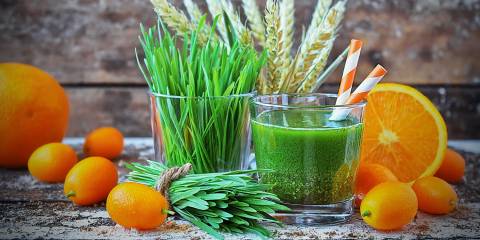To keep up with the fast pace of modern life, energy drinks can help by combating fatigue and boosting mental acuity for daily tasks.
Energy drinks are functional beverages packed with ingredients for effects to support alertness, focus, and memory.
Active Ingredients in Energy Drinks
Most, but not all, energy drinks are sweetened with sugar, which provides the body a quick source of energy.
Besides sugar, the most common ingredients in energy drinks include B vitamins, stimulants like caffeine, and botanical extracts like guarana and ginseng.
Naturally derived compounds like citicoline, and amino acids, which modulate energy availability and levels of some neurotransmitters and hormones in the brain, are important contributors to the function of energy drinks.
-
Sugars
Sugars are a quickly accessible source of energy, available rapidly after ingestion.
Studies in animals suggest that consuming sugars induces a release of the neurotransmitter dopamine in the reward centers of the brain. Sugar also adds viscosity and texture to beverages, making them full-bodied experiences.
-
B Vitamins
B vitamins are implicated in energy production and modulation.
One or more B vitamins is necessary for all catabolic processes; they work as enzymes or coenzymes in most cellular functions, including the metabolism and transformation of various essential amino acids.
-
Caffeine
Caffeine is a bioactive compound that acts as a central nervous system (CNS) stimulant.
Since readily crosses the blood-brain barrier and acts on adenosine receptors throughout the body, it produces a sense of wakefulness, increases the speed and magnitude of vascular contractions, and increases respiratory drive.
With moderation, ingesting caffeine produces a feeling of energetic vitality.
-
Guarana and Ginseng
Naturally derived ingredients like guarana and ginseng are also popular ingredients of energy drinks.
-
Guarana
Sourced in the Amazon Basin, guarana is a seed extract that contains caffeine, theophylline, and theobromine.
Theobromine is a caffeine metabolite, and thus has similar effects, while theophylline is a bronchodilator.
-
Ginseng
Ginseng contains antioxidants that protect cell health and help moderate energy-producing mechanisms in the mitochondria.
Ginseng may also have mood benefits by acting on neurotransmitters like serotonin and hormones like cortisol.
-
-
Citicoline
Another ingredient included in energy drinks is CDP-choline or citicoline.
The naturally occurring compound is critical to the synthesis and maintenance of cell membranes and raises the level of serotonin, dopamine, and norepinephrine in the body.
A growing body of research indicates citicoline supplementation has a positive effect on attention and cognition.
-
Amino Acids
In addition to sugars and stimulants, energy drinks often include amino acids to support mitochondrial mechanisms.
-
L-carnitine
L-carnitine, a derivative of the amino acid lysine, facilitates energy production in the mitochondria by helping transport fatty acids there.
-
L-tyrosine
L-tyrosine and its precursor phenylalanine are components in the synthesis of adrenaline, epinephrine, and dopamine, and counteract the impairments of stress.
-
Taurine
Taurine assists multiple actions within cells including energy production, fluid balancing, and cytoprotective activities.
-
Conclusion
Because of the complex harmony of these ingredients, energy drinks are able to support the focus and attention goals of individuals, whether they’re facing an early morning presentation, an all-nighter studying, or an intense session of fitness training, gaming, or sports.
Understanding the way energy drink ingredients work together in a formulation is key to choosing a product that will be effective for the task at hand.





